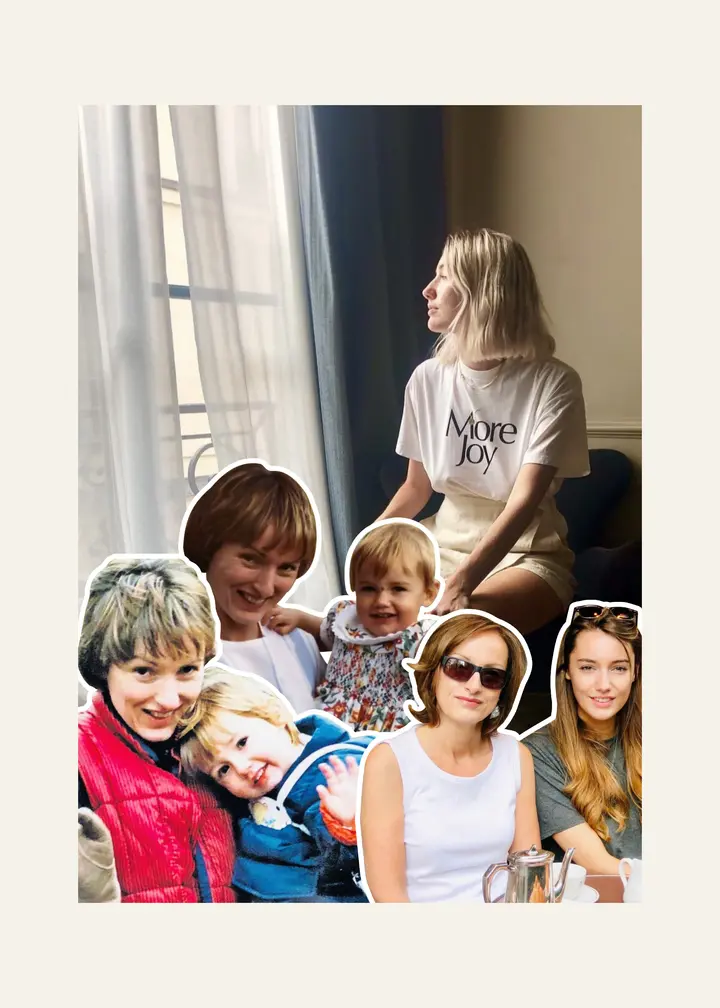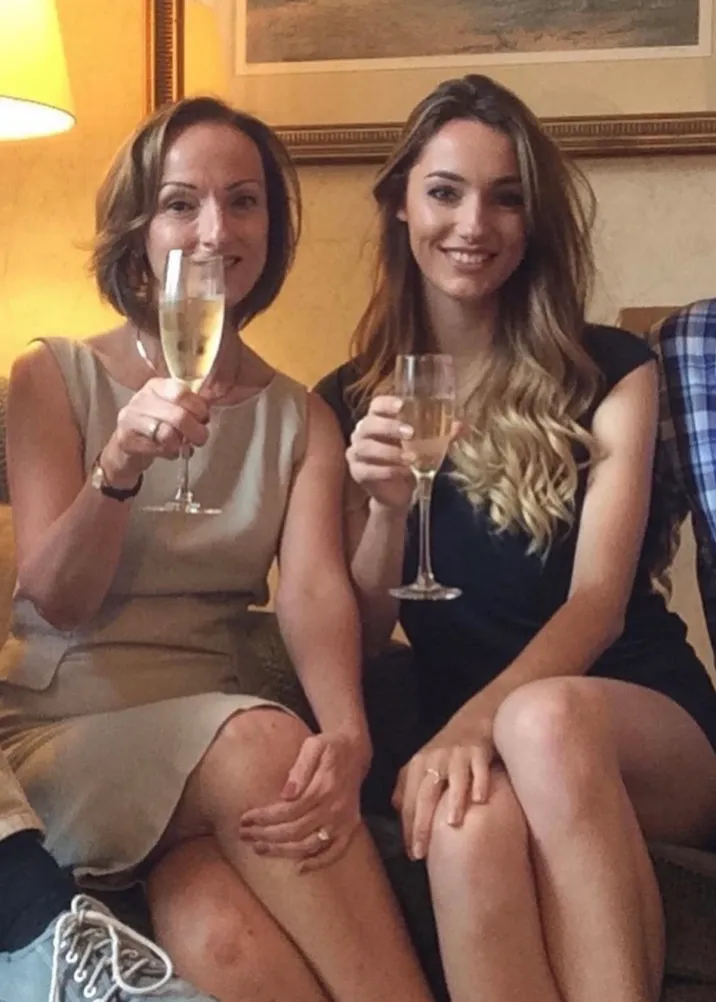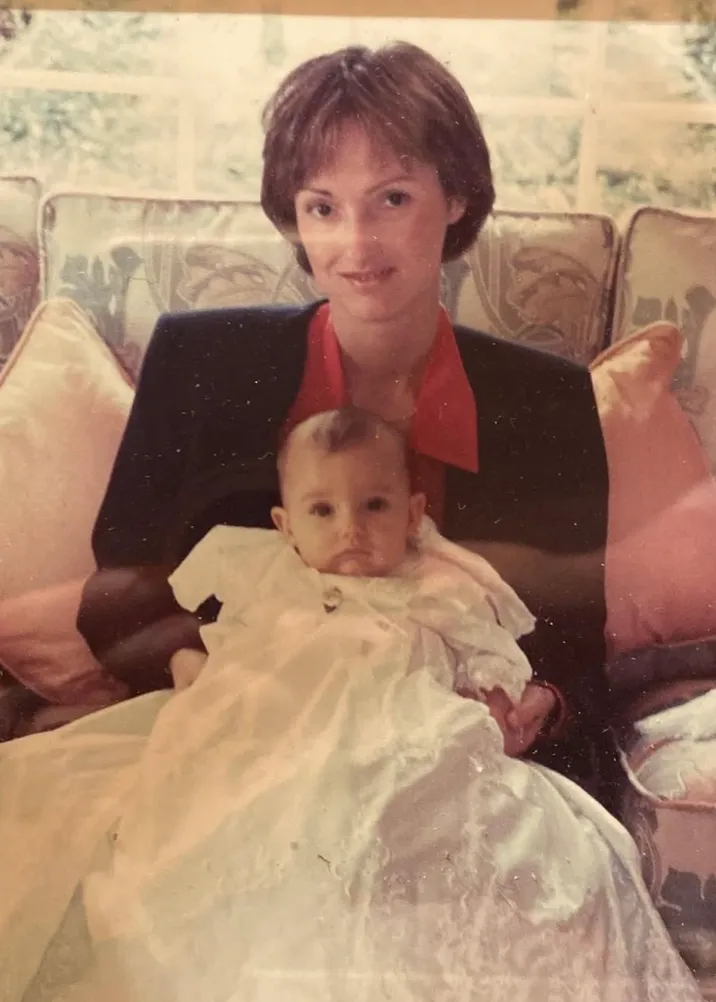
"I Lost My Mom at 26. This Is What I’ve Chosen To Carry – And Leave Behind"
Author Rachel Wilson reflects on losing her mom – and how that deep love still shows up in her life, especially on Mother’s Day.
When you lose your mom young, the grief doesn’t just fade – it grows with you. In this poignant reflection, author of Losing Young, Rachel Wilson explores how love, memory, and loss intertwine, especially on Mother’s Day.
I never thought my mom and I looked alike when she was alive. She didn’t either. People would tell us all the time that we resembled one another (with the occasional flattering remark that we must be sisters – Mom really loved that one), but neither of us could see it.
It was only a few months after her death, when I was looking through photos of her on honeymoon with my father before I was born, when she would have been a similar age to me, that I finally saw it. The same smile, the same eyes, the same dark brown hair swept in a half-fringe across our foreheads. We looked nearly identical. It brought me comfort to realise that even though I’d lost her, I would catch glimpses of her again and again in my own face as I aged.

It's not just her looks I’ve inherited. I always remember my mother as incredibly warm, a compassionate listener full of wisdom, yet possessing a particularly sardonic and sometimes surreal sense of humor. She could hold you close and make you feel heard, but if she was in an impish sort of mood, she could needle you on the spot with an arch remark.
It’s some of these qualities that I’ve carried with me and have helped me to stay in touch with her, even though she’s no longer here. When a friend comes to me with a problem, or is going through a hard time, I know how to listen – really listen – without judging or offering unsolicited advice or judgement. It’s a skill I learnt from my mother, when she was always on the other end of the phone, willing to listen for as long as I needed to complain about work or be in my feelings about some ill-fated romance or an argument with a friend.

And even though we didn’t have the exact same sense of humor – she often joked I was missing one, just like my father – I have the same quick tongue and quick wit that she had. It’s something I attribute to my mother’s Irish roots, shared between my aunts and my grandma – slightly esoteric, often a little cutting, but always able to find some lightness in the darkest of times. That was how we got through my mother’s illness, often with the feeling that if we couldn’t laugh about it, we’d only cry.
Since her death, the gentleness with which my mom would listen to me, or look after me when I came home, is something I’m still trying to cultivate for myself. “Self-care” for me means mothering myself now I no longer have someone else to do it for me. That’s especially true around Mother’s Day – a time that brings her absence into sharper focus, but also reminds me of all the ways I carry her with me. After Mum’s death, I made a conscious decision to try to leave behind the negative voices in my head – the ones that told me I wasn’t good enough, hadn’t achieved enough, or was always failing. It’s an ongoing battle, but I always try to remind myself in hard moments, “What would Mom have said?” The response is often much gentler and kinder than the critical voice that so often plays on full volume in my mind.
I’ve also tried to leave behind the bitterness and anger you can feel when you are bereaved – particularly when you are bereaved at a young age. While many of my friends still have both of their parents to help them with life’s bigger milestones, I often feel that I’m now doing life “alone”. But I try not to feel bitter, or think “Why Mom? Why me?”. I had a brilliant relationship with my mother, and not everyone gets to experience such a healthy relationship with theirs. I’ve also learnt, in the years since her death, that everyone is struggling with something – it just so happens that the burden I have to carry is grief.
The hardest thing to leave behind, though, is the version of myself that my mom knew when she died. I was twenty-five, turning twenty-six. Now in my early thirties, I’ve had entire relationships come and go, I’ve changed careers, and I no longer have the same dark brown hair that made us look so alike in those photos. Around Mother’s Day especially, I find myself reflecting on all of this – the version of me she knew, and the person I’ve become in her absence. It can be difficult to reconcile the independent adult I am now with the younger, more uncertain version of myself who relied on her so heavily.
In difficult moments, it can often feel like I’m still that young vulnerable person whose world is collapsing, and doesn’t know how she will go on. I have to remind myself that I’ve got so many more years of experience now, and that I’ve already been through one of the worst things imaginable – that I’m actually incredibly resilient. My mother helped me to build that strength when she was alive, and I know she is still rooting for me in spirit – and in that way, I’ll always be carrying her with me, no matter how many years have passed.
Enjoyed This?
Read more reflections on motherhood.










